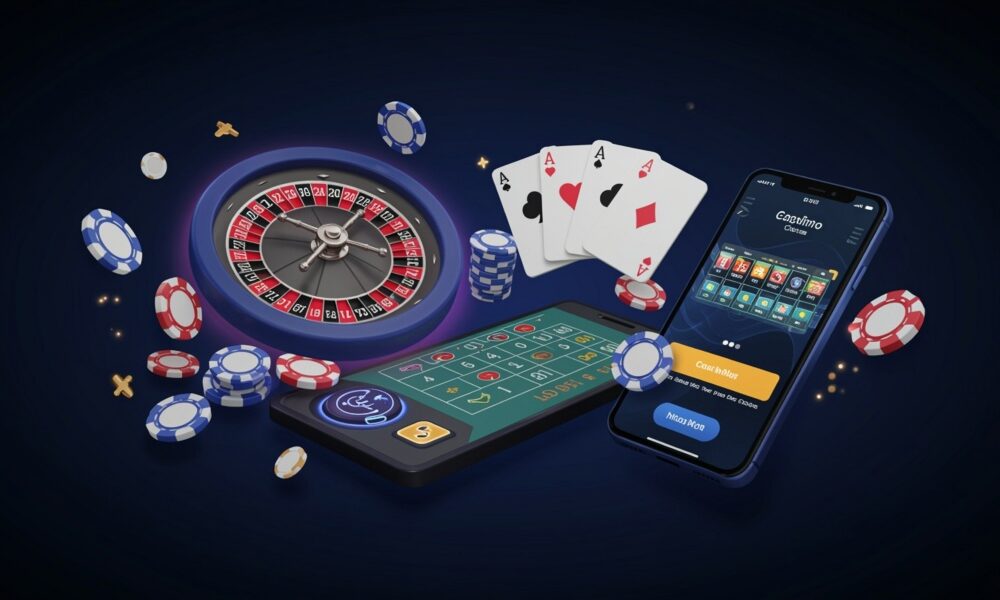Casinos have evolved into entertainment playgrounds. Michelin-starred restaurants, rooftop pools, stadium concerts, arena residencies. Everything designed to be seen. Yet the second someone hits “record,” it’s treated like a security threat. It is marketing theater with a “no-cameras” sign taped to the door.
The contradiction has become almost comedic. Operators are spending millions to attract younger audiences, but enforcing rules written before smartphones existed. You cannot invite people to come for the experience, then tell them not to share it.
Why the ban existed
The no-camera rule was not born out of paranoia. It was born out of practicality. In the early days of Las Vegas, discretion wasn’t a courtesy, it was policy. Politicians, executives, and celebrities wanted to gamble, while staying out of the morning headlines. Privacy was part of the product.
Then came the cheaters. In the 1990s and early 2000s, high-tech scams used hidden cameras and transmitters to peek at dealers’ cards. One group at Bellagio even used a pinhole camera sewn into a player’s shirt button to stream live video to a van outside. The Nevada Gaming Control Board cracked down hard and casinos responded with blanket bans on filming.
By 2010, the average Strip casino had more than 2,000 surveillance cameras. The rule was simple. Casinos film guests, but guests do not film casinos.
It made sense at the time. Gambling still carried stigma. In 2003, only 58 percent of Americans considered gambling morally acceptable. No one wanted to be photographed at a slot machine. But in 2025, it’s not the cameras that have changed. It’s the culture.
The world moved on
Today, 81 percent of Americans own a smartphone. Documenting experiences is second nature. Casinos are no longer secret escapes. They’re content stages. Every restaurant, show, and pool party is designed for visibility. Yet on the floor itself, the rules haven’t evolved.
The irony is that casinos now depend on what they once avoided: exposure. Non-gaming revenue accounts for about 65 percent of total Las Vegas Strip income. That money comes from attractions that thrive on social visibility — dining, entertainment, clubs, and events that go viral.
Meanwhile, other industries with equal risk manage to survive full transparency. Bars don’t ban phones to protect alcoholics. Concerts don’t confiscate devices to avoid spoilers. Retail stores don’t restrict filming near cash registers. The casino industry is the last frontier of the no-phones policy and it’s starting to feel like a relic.
Who is adapting
Some operators have accepted that cameras aren’t going away. MGM Resorts updated its policy in 2023 to allow guests to take selfies and short videos, as long as they respect other players and dealers. The Strat even turned the rule into a marketing hook and printed #STRATselfie right on its tables. Circa and Four Queens have followed with flexible guidelines that favor guest experience over restriction.
None of these changes caused chaos. What they did cause was content. Free, organic, brand-aligned content. Casinos realized that banning filming doesn’t stop it. It just stops people from tagging the property.
Structure it, do not ban it
Casinos are built on structure. So apply it here.
- Designate filming zones. Create clear spaces where guests can film without disrupting play.
- Protect table integrity. Keep restrictions for live hands, pit areas, and security operations.
- Train employees to redirect. “You can film over here” is a better brand impression than “put that away.”
- Leverage social content. Reward posts with perks, hashtags, or recognition on official pages.
- A structured policy isn’t just guest-friendly. It’s marketing-friendly.
The real risk
Casinos talk about attracting Gen Z, but you cannot appeal to a generation raised on visibility by hiding behind no cameras. The rule reads less like responsible gaming and more like an outdated secret.
Every guest with a smartphone is a potential ambassador. Every shared clip is free advertising. The next generation of players will not choose casinos for the odds. They will choose them for the stories they can share.
The fear should not be someone recording a slot win. The real fear is no one recording anything at all.
If casinos want to stay relevant, they need to evolve the same way the audience has. The goal is not to ban phones. The goal is to structure them. Because what happens in Vegas does not need to stay in Vegas anymore. It just needs to look great in 9:16.


